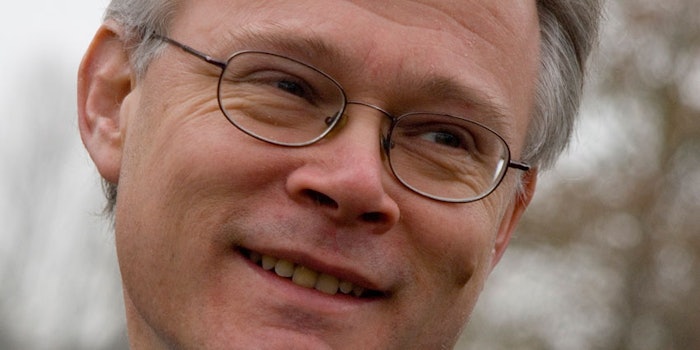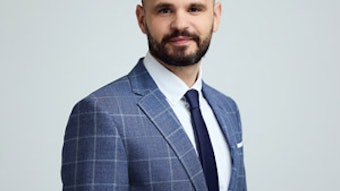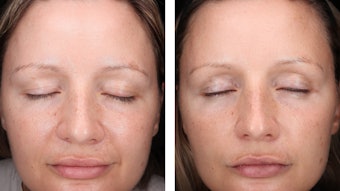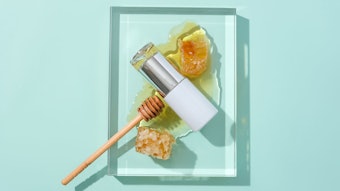
Editor's note: The "Words from Wiechers" article series considers the lessons our industry can learn from the late Johann Wiechers, Ph.D. He was an advisor, colleague and insightful leader in the industry until his unexpected passing. Presenting Wiechers's insights is Anthony J. O'Lenick, Jr.
This month, we review Wiechers's commentary published online by Cosmetics & Toiletries in May 2010: "Is Cosmetic Science Really 'Bad'? Part V: Who Do You Think You Are Fooling?" In this piece, Wiechers admonishes us to “make cosmetic science into something we can be proud of again” and reminds us “cosmetic science is only as bad as you and I make it."
Wiechers was a man of many talents; a scientist, philosopher, statesman for our industry, and friend. Most importantly, he offered keen insights into what our industry needed to do to improve and grow. Here, he addresses several issues in areas that have improved in the 10+ years when he originally observed them—but we still have work to do.
Sales Over Science?
Johann stated:
"Issue 1: As above, putting sales above cosmetic science leads to a reduction of the quality of cosmetic science. Let me illustrate this with a real-life example. One day I found myself somewhere on this planet at a scientific cosmetic event where, also, an exhibition was held. One of our colleagues who was performing his or her booth duties at the exhibition was about to change jobs. The following week, (s)he would be performing the same booth duty at another exhibition on another continent for another supplier company.
"This intrigued me enormously and I asked the individual how (s)he could serve our formulating colleagues with less than even a weekend of preparation? The answer, however, was terribly simple. You read the product folders in the plane and that is enough. Both the new employee and employer seemed to have accepted this as their way of working. Neither party said that this was not good practice. They fooled themselves into thinking this was Okay. Selling was and is again more important than being completely correct and fully informed.
'...If all of us would only submit work to peer-reviewed journals; but that won’t happen. We prefer to publish whatever we want in non-peer-reviewed journals [since] only there we can write whatever we like.'
Peer Review and Trust
"Issue 2: Peer review. How many scientific publications do you read—or phrased differently, how many do you receive each week? Quite a few. How many of these are peer-reviewed? Only journals like the International Journal of Cosmetic Science (IJCS), the Journal of Cosmetic Science (JCS) and the IFSCC Magazine are peer-reviewed. Undoubtedly the Fragrance Journal and the Journal of the Society of Cosmetic Chemists in Japan are also peer-reviewed, but as my Japanese is limited to arigato, I’ve never been through the paper submission and approval process there.
"The rest of the cosmetic journals are trade magazines, of which only very few are peer-reviewed, including our own Cosmetics & Toiletries magazine. Since the IJCS reappeared on Medline, the journal has flourished. Serious cosmetic scientists want to publish in peer-reviewed journals but by far, the majority of what we publish is not peer-reviewed. And hence, we are not believed.
"This could be very easily solved if all of us would only submit work to peer-reviewed journals in the future, but that won’t happen. Why not? Because we prefer to publish whatever we want in non-peer-reviewed journals [since] only there we can write whatever we like. There, we do not have to substantiate our claims. But it was George Washington who said: “You can fool all of the people some of the time, you can fool some of the people all the time, but you cannot fool all the people all the time!” (Editor correction: Abraham Lincoln is, in fact, originally credited with this statement; it seems our Dutch colleague had the wrong American figure.)
"We cosmetic scientists [attempt to] prove George Washington wrong. We think we can fool all the people all the time. But how successful are we, really? Are we believed? I don’t think so. Whatever the supplier tells us is checked by the manufacturer because a supplier cannot be trusted. And subsequently, the consumer is checking the claims of the manufacturer because his/her supplier of whatever cosmetic product can, also, not be trusted.
"But if these products do not work, the consumer will stop buying the product, the manufacturer will stop buying the ingredients and the marketers of the supplier companies will tell us that the market needs a new concept. [It is] not our consumers [who] tell us this, but our own marketers! Who do you think you’re fooling?"
As scientists, we have an obligation not to put sales before science. First, because it is the right thing to do ethically. And second, ... if we fail to keep science number one, we will be called out by so-called pseudo-scientific organizations...
The Lesson
Recently, we have experienced growing pressure from what we sometimes call pseudoscientific groups challenging our formulations and raw materials. And since the time Wiechers penned the above article, the frequency of these challenges has increased. But as an industry, we too often find ourselves reacting to these challenges, not proacting.
Peraps the most powerful voices for our industry are associations, most notably the SCC and IFSCC. While these organizations should not take a position on issues, a platform is still needed for stakeholders to discuss important topics; in fact, the SCC recently created one during a workshop on GMOs and natural oils. The discussions were lively and informative but most importantly, offered diverse opinions. I cannot help but believe that such a "public peer review" goes beyond what Johann has suggested, and therefore substandard science would not continue to exist under such scrutiny.
Additionally, I suggest we think about what we might refer to as “cosmetic ethics”—a topic that was addressed at the IFSCC in Milan this year. As scientists, we have an obligation not to put sales before science. First, because it is the right thing to do ethically. And second, from a pragmatic point of view, if we fail to keep science number one, we will be called out by so-called pseudo-scientific organizations and need to react in a far more emotionally charged environment. The choice is ours.










